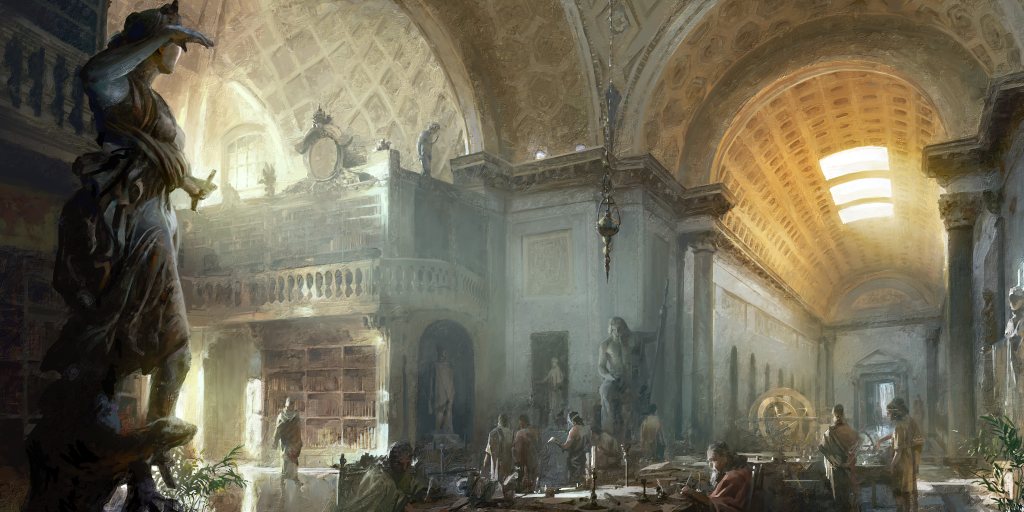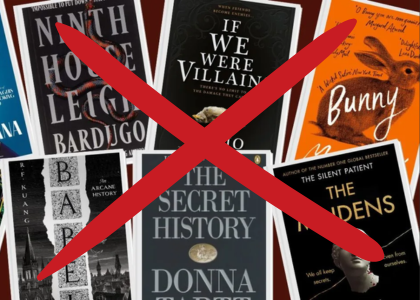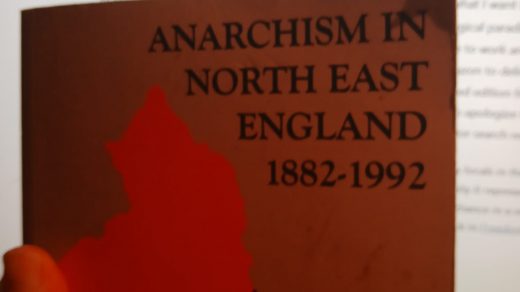What is the best way to satisfy that knowledge-hungry brain of yours? The answer is simple: feed it books.
Now that autumn has officially arrived, the internet is going crazy with the ✧˖°Dark academia aesthetic°˖✧. It is a recurring trend that started around 2014-2015 and romanticises:
- Classical education.
- Literature.
- The fine arts.
Simone Murray describes dark academia as a form of “fatalistic cosplay”. In other words, pretending to be a student or scholar. It might be an expression of the longing of younger generations for a lifestyle that is temporarily or permanently inaccessible to them, due to race and class inequality. This suggests a desire for artificial knowledge. It is not so much about learning and wisdom, but rather the appearance of being an educated person. This complicates our comprehension and understanding, which is crucial in this digital age, where anything can be shared and modified by anyone to show a specific viewpoint.
Before there were search engines, like Google or Bing, there was the library. The house of all knowledge, with the Library of Alexandria as its epitome. Scholars from all over Greece came together to research and document the mysteries of the world and human nature. Unfortunately, it took years to make this knowledge accessible to the public.

Fast forward to the 21st century, and the world still holds many mysteries for us to uncover. Think of the Bermuda Triangle, extraterrestrial life, black holes and so on. Humans are sceptical beings, as many of us tend to believe only what is written on paper. We want evidence and hard facts first before believing the spoken word. In a way, I find this critical phenomenon quite mesmerising. Just consider for a moment how powerful some ink on a piece of paper can be.
I recently started reading Recursion by Blake Crouch. It follows NYPD Barry Sutton and neuroscientist Helena Smith working together to investigate False Memory Syndrome, a mysterious affliction that drives those affected mad with memories of a life never lived. Despite it being a science fiction story, it makes me ponder how we preserve memory and how we perceive reality.
Who can you trust, if not your own thoughts nor the technologies meant to be objective?
A relevant question in this digital age, in my opinion.

Maybe it is just my nerdy me, but lately (together with the dark academia aesthetic), there seems to be a growing interest in the niche corner of the internet for the most random topics. There are video essays on the symbolism of blue hair, Substack articles analysing works of art, and TikTok digging up the forgotten corners of history. Why, then, go through all this trouble of researching, while Google AI can now present to you a paragraph-long summary on a silver platter?

The internet, or Google more specifically, is a perfect example of H.G. Wells’ concept of a World Brain. With the best intentions in heart, he meant for all information to be globally accessible, to share culture. To build a community, so to speak. In the early days of the internet, you actually had to dig thoroughly to find relevant information. The endless scrolling, dozens of open tabs, and clicking link after link could be frustrating for sure, but this also forced you to think. You had to fact-check and think critically to achieve what you had intended to search. But now with Google’s neatly packed AI summaries and social media shrinking history, literature, and philosophy into bite-sized content, this struggle of searching for knowledge is deteriorating. I believe that these people in the niche corner of the internet are reacting against the internet’s convenience, the flattening of complex knowledge.
In The Shallows: What the Internet Is Doing to Our Brains, Nicholas Carr notices a fundamental shift in how we consume information. Carr argues that, with the internet, we expect immediate answers without any careful consideration. In a world obsessed with speed and efficiency, these instant answers might appear like a wondrous gift, but they might be the downfall of our ability to think critically.
Thanks to the skills my education has taught me, I now navigate the internet thoughtfully. I question the validity of video essays that claim to know the best study strategies for me or why waking up at 5 am to journal is good for my mental health. Additionally, together with my inherent stubbornness, I do not let others influence my choice of books, even when someone posts another list of dark academia essentials to read this season.

I respect the internet’s little niche corner. Those people expressing their interests and resisting the idea that everything has to be productive, monetised, or profitable. It is similar to the notion of “Art for art’s sake”; art can be art just because. This kind of ‘pointless’ research reminds us that learning is not about efficiency, but about exploration, curiosity, and wonder. It feels like a radical corner unreachable for AI and algorithms; a space for humans and their silly little interests. While humans are flawed and carry certain biases and have their own backgrounds, these AIs and algorithms are just as susceptible to influence as anything else.
────── ⋆⋅☆⋅⋆ ──────
Resources:
- Murray, Simone. 2023. “Dark Academia: Bookishness, Readerly Self-Fashioning and the Digital Afterlife of Donna Tartt’s The Secret History.” English Studies 104 (2): 347–64. doi:10.1080/0013838X.2023.2170596.
- “Beyond the Aesthetics: An Introduction to Dark Academia,” Lib AAC, April 28, 2025, https://libaac.de/home/full-view-post/detail/News/beyond-the-aesthetics-an-introduction-to-dark-academia/.
- Ahmed Hassan, “The Library of Alexandria.. &Quot; the Great Library&Quot;” Nasser Youth Movement, May 16, 2025, https://www.nasseryouthmovement.net/the-library-memoriesof-alexandria-the-great-library.
- Wells, H.G. 1938. “The World Brain”.
- “Art For Art’s Sake – Modern Art Terms and Concepts,” The Art Story, n.d., https://www.theartstory.org/definition/art-for-art/.
- Carr, Nicholas. 2010. “What the Internet is Doing to Our Brains”.



Recent Comments